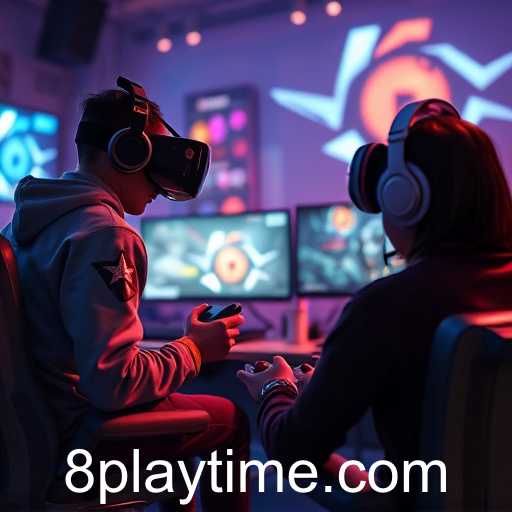The online gaming world has continued to evolve dramatically as we move through the year 2025. With technological advancements and changes in consumer preferences, the industry is seeing both rapid growth and significant transformation. The keyword 'playtime' has taken on new dimensions in this dynamic landscape.
As gaming platforms become more advanced, 'playtime' now offers not just hours of entertainment but also opportunities for social interaction, skill development, and even professional growth. Platforms like Steam and Epic Games Store have continued to dominate the market, while new contenders constantly emerge, offering enhanced features and immersive experiences.
Virtual reality (VR) has become a mainstay in the industry, providing users with fully immersive environments. Companies are investing heavily in improving VR hardware and software, making the technology more accessible to a broad audience. The potential of VR in gaming is limitless, with new content and experiences being developed regularly, keeping 'playtime' exciting and novel.
In addition to technological advancements, societal shifts are driving change. The gaming community continues to push for more inclusive and diverse content, leading to a more representative range of characters and storylines in games. This move toward inclusivity not only reflects broader cultural movements but also expands the audience and deepens user engagement.
The 'playtime' experience is also being shaped by the rise of game streaming and esports. Twitch and YouTube Gaming are pivotal platforms, not just for users who enjoy playing games, but also for those who love watching others play. The esports scene is exploding, with professional players attaining celebrity status and tournaments drawing in huge audiences worldwide.
As the year progresses, the gaming industry faces challenges, particularly regarding data privacy and the mental health impact of extended screen time. However, solutions are being explored, addressing these issues with innovative approaches and policies.
In summary, the concept of 'playtime' has transformed in 2025, driven by technological innovation and cultural shifts. As gaming continues to be an integral part of global entertainment, its impact on society will undoubtedly expand further.








